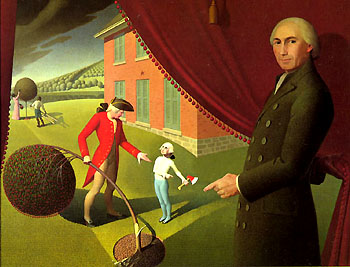This week’s On the Street photo essay nakes the transit from Mickey and Minnie Mouse’s haute couture to Renaissance “headache” bands. According to Bill Cunningham, “Outside the look that marks an era, there are always other currents. And in Paris recently, they were a delight to the eye.”
Monthly Archive for March, 2009
Hey, Paul Krugman by Jonathan Mann:
Hey Paul Krugman,
Why aren’t you in the administration?
Is there some kind of politicking that I don’t understand?
I mean, Timothy Geithner is like some little weasel.
Wasn’t he in a position of power
when all this shit went down in the first place?When I listen to you, things seem to make sense
When I listen to him, all I hear is blah, blah, blah.Hey Paul Krugman,
where the hell are ya, man?
‘Cause we need you on the front lines
not just writing for The New York Times.
I’d feel better if you were calling some shots
instead of writing your blog and probably thinking a lot.I mean, don’t you have some influence?
Why aren’t you secretary of the Treasury?For God’s sake, man, you won the Nobel Prize.
Timothy Geithner uses TurboTax.When I listen to you, things seem to make sense.
When I listen to him, all I hear is blah, blah, blah.Hey Paul Krugman, where the hell are ya, man?
(Obama Breakdown)Sing it with me!
When I listen to you, things seem to make sense.
When I listen to him, all I hear is blah, blah, blah.Hey Paul Krugman, where the hell are ya, man?
Your country needs you now.
Stephen Dubner’s response on NYT’s Freakonomics Blog: “TurboTax!”
![vik_muniz_pbj_mona_lisa_2 Vik Muniz. Mona Lisa in Peanut Butter & Jelly. [Source: Divulgação/globo.com]](../wp-content/uploads/2009/03/vik_muniz_pbj_mona_lisa_2.jpg)
Vik Muniz. Mona Lisa in Peanut Butter & Jelly. [Source: Divulgação/globo.com]
Call it synchronicity. I’d just read the Mona Lisa chapter in Charles Nicholl’s biography of Leonardo da Vinci![]()
before falling asleep, then I awoke to a BBC interview with artist Vik Muniz describing his rendition of La Giaconda in peanut butter and jelly. Talk about licking some lips!
When I went looking for an image I found it first at a blog by Heather McDougal called A Cabinet of Wonders, which is surely a flaneur’s treasure trove that would have delighted Walter Benjamin. Then I found Mona Lisa’s edible drama enacted on this video clip from Russia Today. Watch it to the very end and try not to steal into the kitchen for a kiss of PBJ.
Paris has legs in Bill Cunningham’s latest On the Street photo essay, shot en plein air during Paris Fashion Week.
![Eugène Delacroix. Liberty Leading the People. 1830. Louvre, Paris. [Source: Wikimedia Commons]] Eugène Delacroix. Liberty Leading the People. 1830. Louvre, Paris. [Source: Wikimedia Commons]]](../wp-content/uploads/2008/05/delacroix_liberty_1830_2.jpg) O.K., I’m sorry. Let me try again. “Laura, knock down that accessibility barrier, please.” Nick Negroponte said someone like you would come along someday to help me get stuff done. I’ve been waiting for your cool efficiency and ass-kick assertiveness for years. I’ve been working without support staff for so long that I forgot my manners. I’ll do better next time. Don’t go passive-aggressive on me, Laura. I’ll send you a sonnet by Petrarch on Virtual Assistants Day.
O.K., I’m sorry. Let me try again. “Laura, knock down that accessibility barrier, please.” Nick Negroponte said someone like you would come along someday to help me get stuff done. I’ve been waiting for your cool efficiency and ass-kick assertiveness for years. I’ve been working without support staff for so long that I forgot my manners. I’ll do better next time. Don’t go passive-aggressive on me, Laura. I’ll send you a sonnet by Petrarch on Virtual Assistants Day.
Who’s Laura? The new VA from Microsoft. Eric Horvitz extolled her virtues this morning on NPR. Since Laura is still in development, let me place my custom order in advance. Booking airline reservations would be nice, but I don’t need to be nagged about blowing off deadlines. I want a virtual assistant who understands my accessibility needs and can hack text and code like an administrative professional killing snakes. Except that’s just a metaphor, in case you don’t do nuanced tonality yet. Really, I like snakes. You’ll have to do a lot of reading to me, so I’d love a voice that purrs like Catherine Deneuve selling the proverbial bath oil. And you can skip the ice-cube persona. I want the passion of Delacroix’s Liberty leading the people over the barricades!
Listen to Garrison Keillor read this on today’s The Writer’s Almanac.
The Loon
by James TateA loon woke me this morning. It was like waking up
in another world. I had no idea what was expected of me.
I waited for instructions. Someone called and asked me
if I wanted a free trip to Florida. I said, “Sure. Can
I go today?” A man in a uniform picked me up in a limousine,
and the next thing I know I’m being chased by an alligator
across a parking lot. A crowd gathers and cheers me on.
Of course, none of this really happened. I’m still sleeping.
I don’t want to go to work. I want to know what the loon is
saying. It sounds like ecstasy tinged with unfathomable
terror. One thing is certain: at least they are not speaking
of tax shelters. The phone rings. It’s my boss. She says,
“Where are you?” I say, “I don’t know. I don’t recognize
my surroundings. I think I’ve been kidnapped. If they make
demands of you, don’t give in. That’s my professional advice.”
Just then, the loon let out a tremendous looping, soaring,
swirling, quadruple whoop. “My god, are you alright?” my
boss said. “In case we do not meet again, I want you to know
that I’ve always loved you, Agnes,” I said. “What?” she said.
“What are you saying?” “Good-bye, my darling. Try to remember me
as your ever loyal servant,” I said. “Did you say you loved
me?” she said. I said, “Yes,” and hung up. I tried
to go back to sleep, but the idea of being kidnapped had me
quite worked up. I looked in the mirror for signs of torture.
Every time the loon cried, I screamed and contorted my face
in agony. They were going to cut off my head and place it on
a stake. I overheard them talking. They seemed like very
reasonable men, even, one might say, likeable.
“The Loon” by James Tate from Return to the City of White Donkeys![]() . © Ecco Press, 2004.
. © Ecco Press, 2004.
Jonathan Zittrain tells a cautionary tale about Steve Jobs on this week’s On The Media. Zittrain’s concern looks to the future of indigenous, decentralized innovation on the Internet, but the implications of his message apply just as well to accessible technology for people with disabilities.
Consider the iPhone. You can develop an application for it, but you can’t install it on your phone or share it with others unless Apple approves it first. The upside is a more secure gadget, but the downside is that Apple becomes a gatekeeper, according to Zittrain, with “its own motives and incentives that are not always the same as the consumers it’s supposed to serve. When someone submitted an iPhone app that counted down the time left for the Bush Administration (“The End of an Error” was the app’s marketing slogan), Apple rejected it. “Steve Jobs wrote [the developer] when he complained, and said, this is an application that will offend roughly half of our users. What’s the point?”
Zittrain continues:
And my strong belief is that so much of the code we now think of as central and crucial and cool and revolutionary is code for which, when most rational people first see it, their reaction is, what’s the point?
You could say that about something like Twitter … Somebody says, now people can update their status with 140 characters or fewer. And the obvious reaction to that is, what’s the point? Or with blogs or with Wikipedia – now at last everybody can edit a page simultaneously. I’m sure it’ll produce a reliable encyclopedia… You know, the right answer to that is, you guys are on drugs.
And it’s only when somebody can just try it out and doesn’t have to persuade anyone else that this is something for which there’s a point that you get this kind of innovation taking place.
That’s what I mean when I talk about re-imagining accessibility. I’ve had it with trying to persuade someone, day in and day out, to make something accessible. I’m tired of the indifferent shrugs that say, “What’s the point?” or “That would cost too much” or “I don’t have time to do that.” Well, you don’t have to make it accessible for me. I’ll hack it myself, thank you. I just want to try.
And speaking of gatekeepers and iPhones, Tim O’Brien sent an open letter to Steve Jobs about making the cult gizmo more accessible. Zittrain’s story suggests that Tim might get a reply, although probably not a thoughtful solution.
Listen to Jonathan Zittrain on OTM’s The Net’s Mid-Life Crisis:
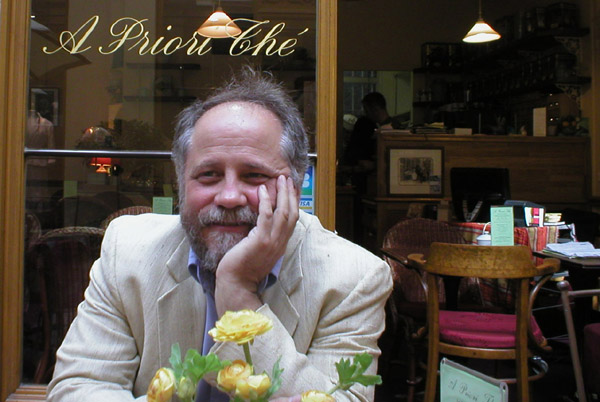
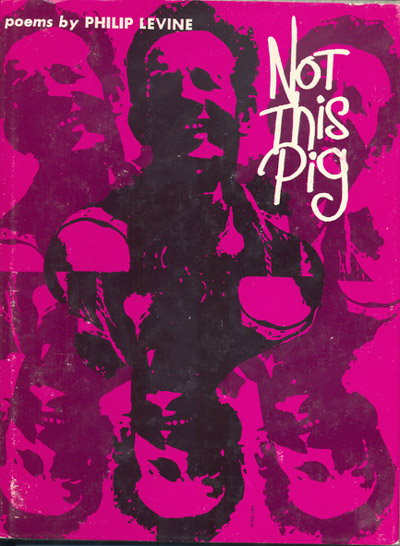 If there is an emerging genetic underclass, I could run for class president or class clown. Read more in
If there is an emerging genetic underclass, I could run for class president or class clown. Read more in ![Fog at Isle Royale [Source: wildmengoneborneo.com] Fog at Isle Royale [Source: wildmengoneborneo.com]](../wp-content/uploads/2008/04/isle_royale_fog.jpg) "Brendan, this is what the world looks like all the time to me. Just a little fog. It’s a fine day for boating on the Great Lakes.” Without missing a stroke he turned to dart a skeptical glance at me. Brendan the Navigator. When we named him I didn’t tell his mother everything the legendary Irish name implied. But I imagined him taking on the role of navigator for me. Growing up with Coastal Survey charts and tales of Great Lakes shipwrecks, he came to know Superior as another home. He never doubted the wisdom of canoeing there with a father who was half blind.
"Brendan, this is what the world looks like all the time to me. Just a little fog. It’s a fine day for boating on the Great Lakes.” Without missing a stroke he turned to dart a skeptical glance at me. Brendan the Navigator. When we named him I didn’t tell his mother everything the legendary Irish name implied. But I imagined him taking on the role of navigator for me. Growing up with Coastal Survey charts and tales of Great Lakes shipwrecks, he came to know Superior as another home. He never doubted the wisdom of canoeing there with a father who was half blind. 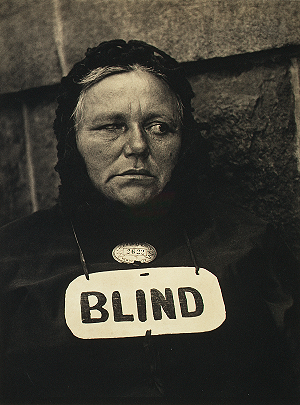
![Charlotte Casiraghi in a red dress. [Source: Stylophile] Charlotte Casiraghi in a red dress. [Source: Stylophile]](../wp-content/uploads/2008/02/charlotte_casiraghi_red_dress.jpg) When I figured out who Charlotte Casiraghi was, I realized that I once sent a poem to her mother.
When I figured out who Charlotte Casiraghi was, I realized that I once sent a poem to her mother. 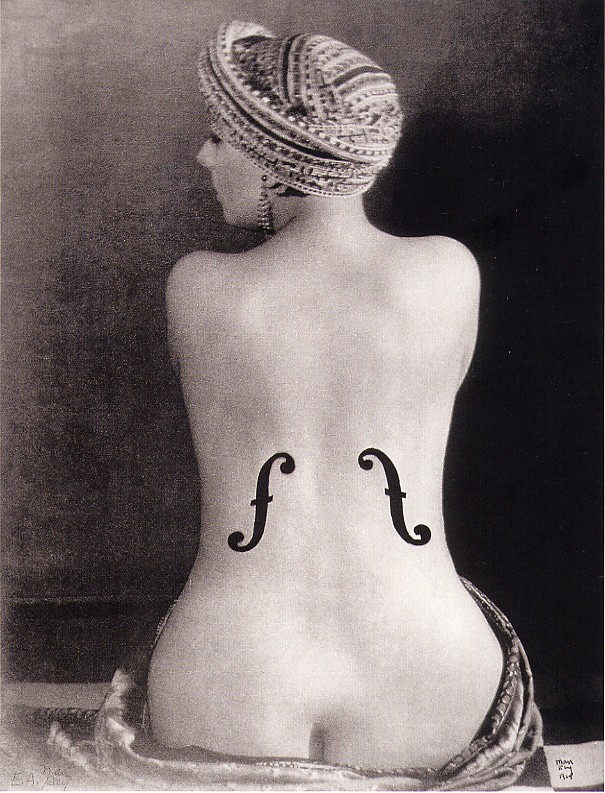 The legendary Kiki of Montparnasse posed for Man Ray’s
The legendary Kiki of Montparnasse posed for Man Ray’s 